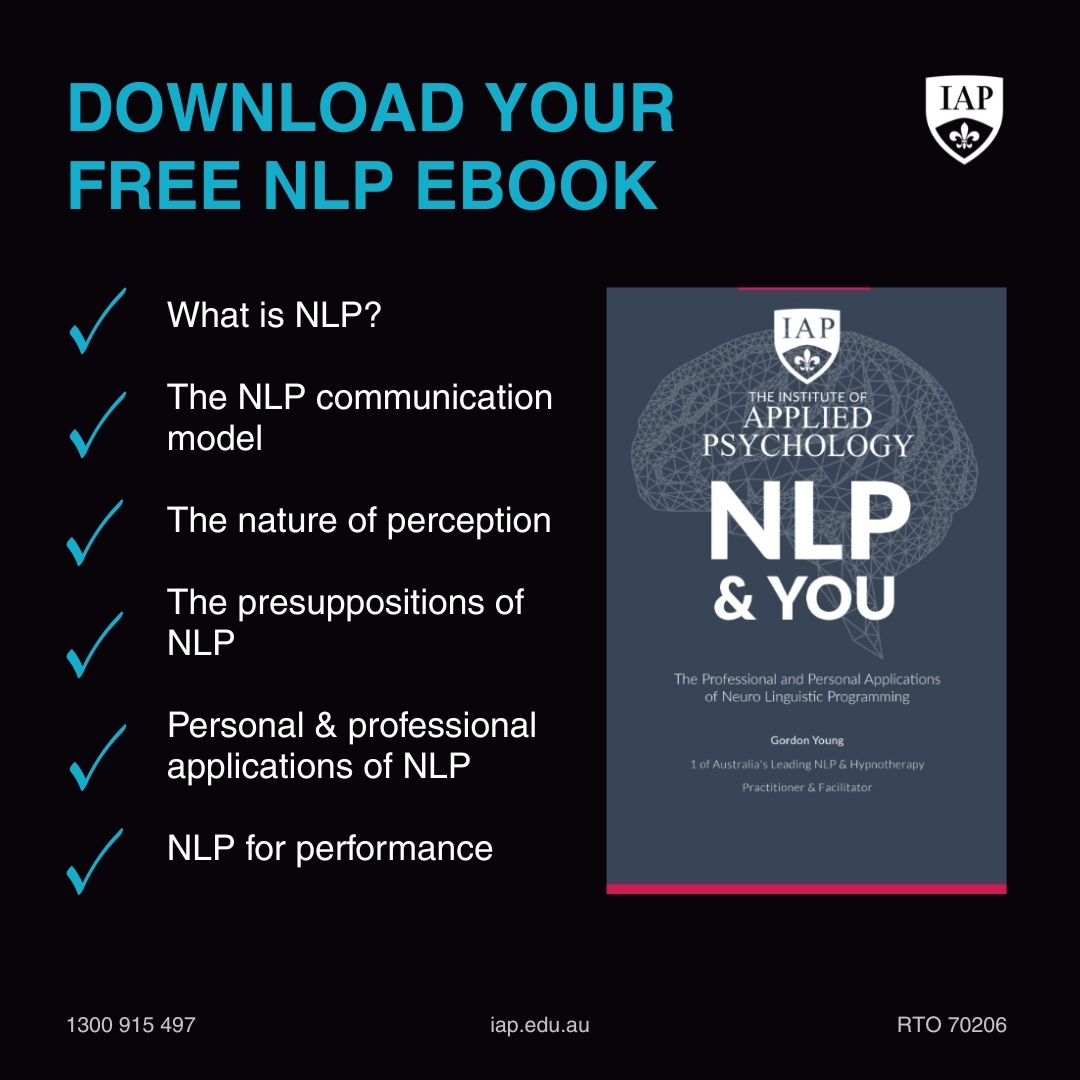7 Top Reasons Why People Choose NLP: Unlocking Potential for Personal and Professional Success
Neuro-Linguistic Programming (NLP) has become a transformative tool for individuals seeking personal growth, career advancement, and improved relationships. It offers practical techniques that empower people to take control of their thoughts, emotions, and behaviours, enabling them to achieve their goals and overcome challenges. But why do people choose to study NLP, and how can it be applied across different career paths and personal roles?
This blog will explore 7 of the main reasons people pursue NLP and provide examples of how it can be applied in the real world, from professional settings to parenting and personal development.
What is NLP?
NLP is a methodology that explores the connection between neurological processes (neuro), language (linguistic), and behavioural patterns (programming). Developed in the 1970s, NLP focuses on understanding how people think, communicate, and behave, with the goal of creating positive changes in their lives.
At its core, NLP equips individuals with tools to:
- Identify and reframe limiting beliefs.
- Enhance communication and rapport-building skills.
- Develop strategies for achieving specific outcomes.
1. Personal Development
Many people turn to NLP to unlock their potential and better understand themselves. Whether overcoming fears, building confidence, or managing stress, NLP provides practical techniques that can lead to lasting change.
Example: Breaking Limiting Beliefs
Imagine an individual who has struggled with self-doubt, believing they are incapable of career success. Using NLP techniques such as reframing and anchoring, they can replace this limiting belief with a more empowering one, like “I am capable of learning and achieving my goals.”
Key Applications for Personal Growth
- Stress Management: Use NLP anchoring techniques to associate calmness with specific triggers.
- Confidence Building: Visualisation exercises help individuals “step into” a confident version of themselves.
- Goal Setting: NLP’s SMART outcomes model enables clear, actionable goal planning.
2. Professional Growth
NLP can be a game-changer in the workplace. From improving leadership skills to enhancing team collaboration, it equips professionals with the tools to excel in their careers.
Example: Leadership Development
A manager in a corporate setting might use NLP’s rapport-building techniques to foster stronger connections with their team. By mirroring body language and understanding communication styles, they can create a sense of trust and mutual respect, resulting in higher team morale and productivity.
How NLP Helps in Different Careers
- Sales Professionals: Use NLP techniques like pacing and leading to build trust and close deals effectively.
- Healthcare Workers: Apply language patterns to calm anxious patients and improve communication.
- Entrepreneurs: Leverage NLP strategies to overcome self-doubt and focus on business goals.
3. Parenting and Teaching
Parents and educators increasingly turn to NLP to support children’s growth and development. NLP techniques are particularly effective in helping children build resilience, manage emotions, and develop a positive mindset.
Example: Helping a Child with Confidence
A parent notices their child struggles with self-esteem, often saying, “I can’t do this.” Using NLP’s reframing technique, the parent helps the child shift their perspective to, “I haven’t mastered this yet, but I’m learning.” This small language change encourages a growth mindset and builds confidence.
Key Benefits for Parents and Teachers
- Building Rapport: Strengthen connections with children by matching their communication styles.
- Managing Behaviour: Use positive language patterns to encourage desired behaviours.
- Setting Goals: Help children set and achieve realistic goals, fostering a sense of accomplishment.
4. Enhancing Interpersonal Relationships
Strong communication is the foundation of successful relationships, whether personal or professional. NLP provides tools to understand and adapt to different communication styles, making resolving conflicts and building meaningful connections easier.
Example: Resolving Conflict
Two colleagues struggle to work together in a workplace setting due to differing communication styles. One colleague realises that their teammate prefers detailed, step-by-step instructions by understanding NLP’s meta-programs, which explore how people process information. Adapting their communication style resolves the tension and improves collaboration.
Applications for Better Relationships
- Couples: Strengthen relationships by identifying and addressing each partner’s communication needs.
- Friends: Build deeper connections by improving listening and empathy.
- Work Teams: Enhance collaboration by fostering understanding of diverse perspectives.
5. Therapeutic Applications
NLP is widely used in therapeutic settings to help individuals overcome trauma, anxiety, and negative habits. Its focus on reframing and creating new thought patterns makes it an effective tool for personal transformation.
Example: Overcoming a Fear of Public Speaking
A client who fears public speaking works with an NLP practitioner to reframe their internal dialogue. By replacing thoughts like “I’ll fail” with “I am prepared and capable,” they build confidence and eventually deliver a successful presentation.
Other Therapeutic Benefits
- Breaking Habits: NLP helps individuals quit smoking or manage overeating by addressing underlying triggers.
- Emotional Resilience: Techniques like timeline therapy enable people to release emotional baggage.
- Trauma Recovery: NLP provides gentle, effective tools to reframe traumatic memories.
6. Problem-Solving and Creativity
NLP encourages individuals to approach challenges from new perspectives, fostering creative problem-solving. This is particularly valuable in careers that require innovation or strategic thinking.
Example: Innovating in Business
Entrepreneurs facing a business challenge use NLP’s perceptual positions technique to explore the problem from their own perspective, that of their clients, and that of an outsider. This exercise generates new ideas and solutions they hadn’t considered before.
7. Building a New Career
Many study NLP as a stepping stone to a new coaching, therapy, or consulting career. The skills learned in NLP are highly transferable and valued in professions focusing on personal development and helping others.
Example: Becoming a Life Coach
A professional transitioning from corporate to coaching uses NLP techniques to help clients identify and achieve their goals. Tools like anchoring and meta-model questioning become integral to their practice, enabling them to create meaningful impact.
Why NLP Appeals to Career Changers
- Flexibility: NLP skills can be applied in various industries.
- Empowerment: Many find fulfilment in helping others achieve their potential.
- Holistic Approach: NLP complements other modalities like hypnotherapy, yoga, or wellness coaching.
Why NLP?
NLP offers a unique blend of tools and strategies that can be tailored to individual needs and goals. Whether you’re a parent, teacher, leader, or someone on a journey of personal growth, NLP provides practical techniques to transform your life and the lives of others.
By understanding and harnessing the power of your thoughts and language, you can create meaningful changes, build stronger connections, and achieve the success you’ve always envisioned.
Are you ready to unlock your potential? Studying NLP could be the first step towards a brighter, more fulfilling future.
Call us on 1300 915 497 or download the brochure here.








